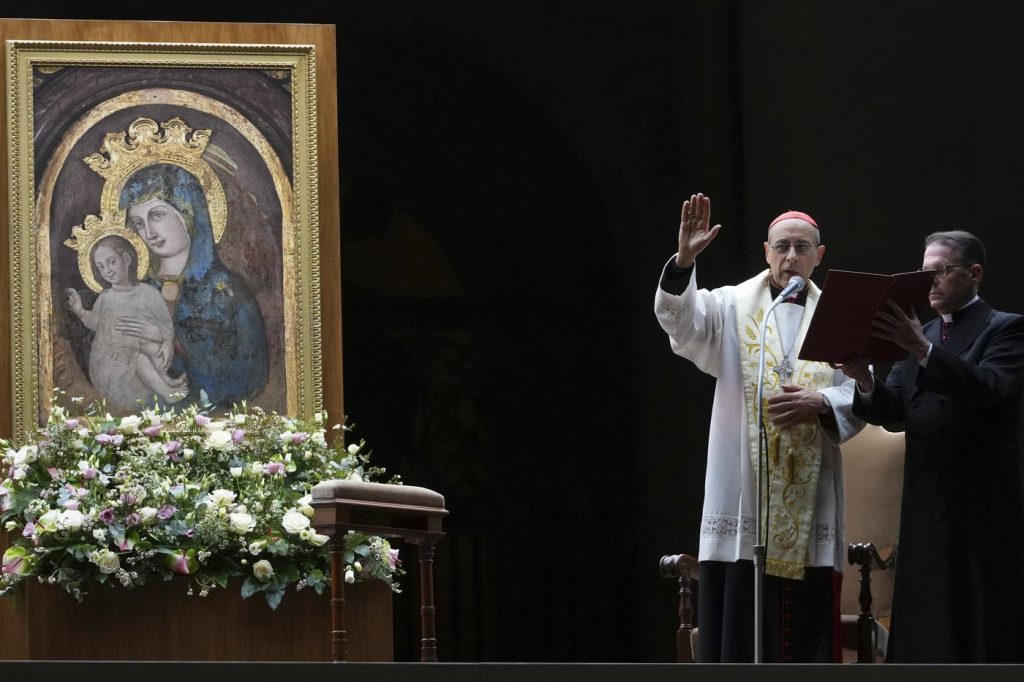ROME (AP) – Pope Francis is currently resting after a concerning setback in his recovery from double pneumonia. Following a troubling coughing fit during which he inhaled vomit, doctors at Rome's Gemelli Hospital placed the 88-year-old pope on non-invasive mechanical ventilation. This incident occurred as part of a two-week recovery from a worsening bout of bronchitis that transformed into pneumonia affecting both lungs.
Medical professionals reported that it would take one to two days to assess the impact of this episode on Francis's overall health condition. The prognosis remained guarded, indicating that the pope is not out of danger yet. According to the Vatican's morning update, “The night has passed quietly, the pope is resting.”
On Friday evening, the Vatican disclosed that Pope Francis had experienced an “isolated crisis of bronchial spasm,” which led to the accidental inhalation of vomit and subsequently caused a “sudden worsening of the respiratory picture.” In their efforts to alleviate this situation, doctors successfully aspirated the vomit and initiated non-invasive ventilation to help with his breathing. The pope remained conscious and alert throughout the ordeal and collaborated with medical staff to enhance his recovery, showcasing a good exchange of oxygen while continuing to wear a mask for supplemental oxygen.
This incident marked a striking contrast to the previous two days, during which doctors had provided increasingly positive updates concerning the pope's health. Francis, who had previously undergone surgery to remove a portion of one lung as a young man, has been dealing with lung issues, exacerbated by his recent health struggles.
Medical experts expressed alarm over the recent episode. Dr. John Coleman, a pulmonary critical care doctor from Northwestern Medicine in Chicago, pointed out that the situation underscores the pope’s fragility, emphasizing that his condition can deteriorate quickly. He stated, “I think this is extremely concerning, given the fact that the pope has been in the hospital now for over two weeks, and now he’s continuing to have these respiratory events and now had this aspiration event that is requiring even higher levels of support.”
Dr. William Feldman, a pulmonary specialist at Brigham and Women’s Hospital in Boston, remarked that it was reassuring that the pope was alert and oriented during the episode but agreed that it indicated a distressing turn in his health status. He further explained that non-invasive ventilation techniques, such as a BiPAP machine that helps push air into the lungs, are generally employed as a move to avoid intubation or invasive mechanical ventilation.
While the Vatican has refrained from describing the pope as being in “critical condition” for the past three days, they clarified that he remains at risk given the complexity of his case. Throughout this challenging episode, prayers and support for Pope Francis have been abundant. Late Friday, Cardinal Victor Manuel Fernández, one of the pope’s closest friends within the Vatican, led a prayer session in St. Peter’s Square, not only beseeching for Francis’s health but also calling for prayers for those suffering from various burdens, including war, illness, and poverty.
In addition, the Vatican released a document signed by Pope Francis on February 26, titled “From the Gemelli Polyclinic,” underlining that despite his hospitalization, the pope continues to fulfill his papal duties.
This situation remains fluid as the Vatican monitors Pope Francis's condition closely, with the medical team evaluating the effects of his recent health setbacks. The ongoing public prayers and concern reflect the deep bond many feel towards the leader of the Roman Catholic Church as he faces these significant health challenges.










